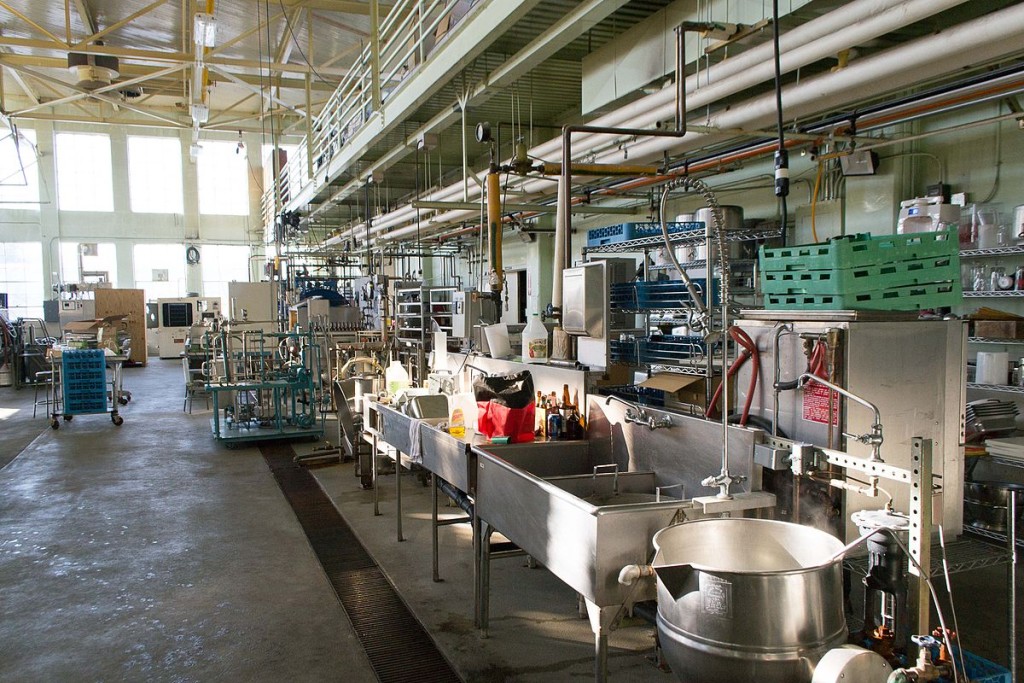You may not immediately connect technology and food in your mind but the fact is they are becoming more closely linked every day. From restaurants that focus on molecular gastronomy to the fight over genetically-modified foods, our food production system is quickly becoming dependent on technology. The good news is that there have been several great improvements to food products and the manufacturing system. With the right focus and support from the public, technology can improve the quality of the food supply while keeping costs low and even encourage better food production in impoverished countries.
The term “food science” in general refers to any applied science related to food. This could include the study of the chemical reactions inherent in processing food, including changes to texture and flavor as well as chemical structure. Much of this science is used to create or control certain food production systems to enhance specific flavors or preserve foods for long periods of time. Food microbiology focuses on the microorganisms related to food and their interactions during processes such as fermentation. Of course, product development is another large area of food science.
Molecular gastronomy is a sub-section of the food science discipline. It’s focused on the chemical and physical processes and changes that happen when food is cooked. This is most often seen in innovative cooking mechanisms such as creating edible foams and using liquid nitrogen for flash freezing. Other cooking devices based on molecular gastronomy include the anti-griddle, thermal immersion circulator and edible paper.
Most people have at least a basic idea of what genetically-modified foods are, or at least know that there is a great debate involving the entire process. The common term is GMO, which stands for genetically modified organism, and a “GMO food” is one that is the result of some genetic engineering in the DNA of one or more of the ingredients in the food. Proponents of GMO foods tout the improved flavor, preservation and production capability. Those who oppose the process cite fears of health risks related to a predominantly genetically-modified diet.
In recent years, the GMO debate has become more well-known as many mass-produced foods have begun including genetically-engineered ingredients and consumers have seen conflicting labeling practices. Some people want food packaging to clearly state whether or not it includes genetically-modified ingredients, whereas others claim GMO foods are completely safe and additional labeling will drive up production costs. There are strong opinions on both sides of the debate, but one thing is clear: the entire reason GMOs exist is due to advances in food science and technology.
Another area of food technology is related to the mass production of food and finding ways to make processed foods healthier, cheaper and easier to manufacture. Hampton Creek is one company leading the way in such technological advances. The company is dedicated to finding ways to mass-produce food in a way that is healthier for consumers and better for the environment. The company’s founder believes that making strides in this area will make food less expensive for consumers and easier to provide to areas of severe food shortages.
Hampton Creek started out genetically modifying foods in hopes of creating a substitute for eggs that would taste good and behave in a way similar to an egg when cooked and used in other foods. Their research led them to a specific protein found in peas, which is the basis for their egg substitute. They were able to produce this egg substitute with lower incurred expenses than those related to commercial egg production.
While Hampton Creek currently produces and sells a line of vegan mayo spreads, salad dressings and even egg-free cookie dough, there are several other products in the works. The company continues to stress that the overall goal is to transform the food production system itself by proving that using plant-based products is less expensive and more eco-friendly that relying heavily on animal products and byproducts.
Technology is a vital element of the modern food production system. From genetically-modified apples that resist oxidation to innovative foods made with molecular gastronomy devices, science is an important part of food production. Some companies are even using scientific research to create products that are healthy and eco-friendly alternatives to traditionally-produced foods. Ideally, technological advances will continue to make food tastier and more accessible for people all around the world.













Comments are closed.